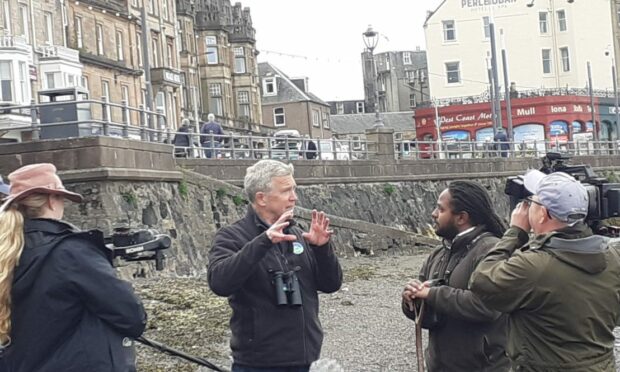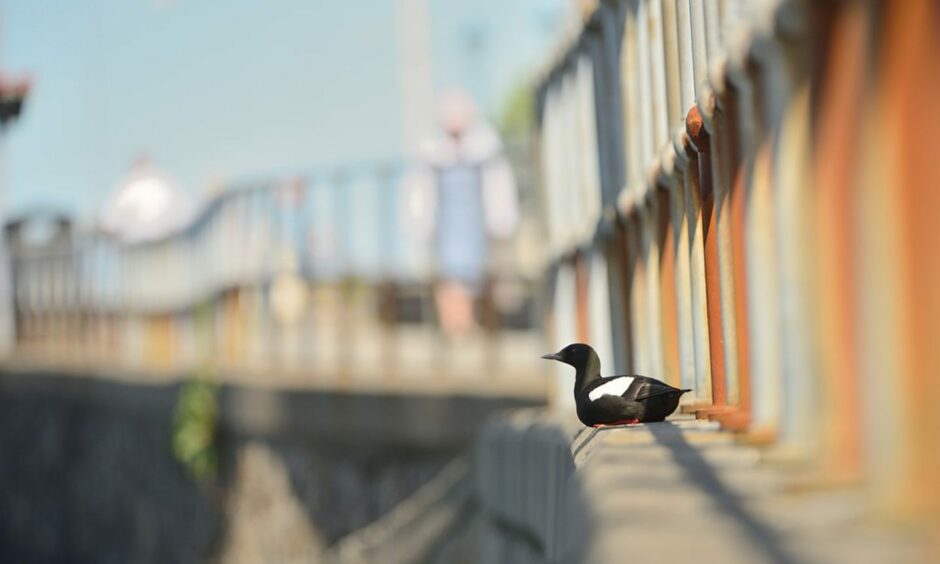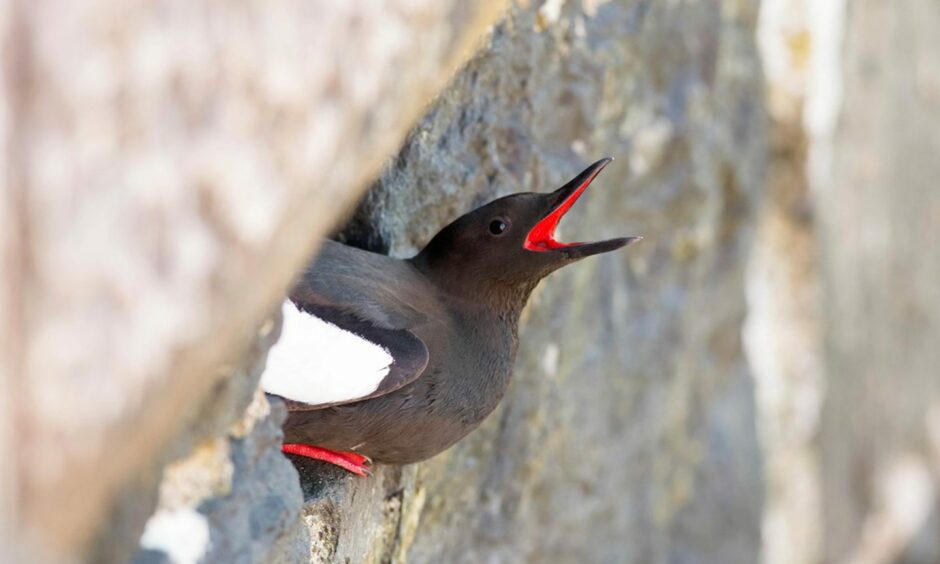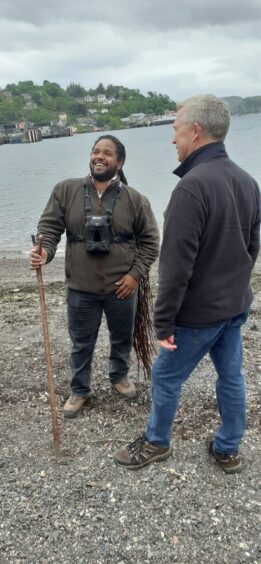Oban’s colony of black guillemots gets the star treatment on Sunday night as Strictly winner Hamza Yassin is back on home turf.
The wildlife cameraman and presenter, who lives in Ardnamurchan, is the most recent winner of Strictly Come Dancing.
But he is busy with his day job among wildlife this weekend.
Sunday night’s Countryfile at 6pm on BBC One sees Hamza visiting the guillemots in Oban.
And he learns more about the critically endangered flapper skate. An area of Argyll coast is home to the only known nursery of these mysterious creatures of the deep.
Filming of the episode last month was held up as Hamza happily accommodated countless requests for selfies.
He and the crew were on the beach along the Esplanade in Oban’s town centre as they studied the guillemots.
The show sees Hamza meeting RSPB Scotland’s mull officer Dave Sexton.
Oban’s harbour is home to 15 pairs of charismatic black guillemots
The Strictly winner made Ardnamurchan in the west Highlands his home after arriving there to film 12 years ago.
And Oban is home to about 15 pairs of the seabirds featured on Sunday.
They find sanctuary and nest sites in gaps and pipes in the harbour wall and along the Esplanade. This allows close up views of the pigeon-sized birds as they rest, preen and socialise. It all happens just offshore and on harbour steps and slip-ways.
Black guillemots, like many seabirds, face a range of threats these days from over-fishing to predators and now bird flu.
Also known by their Shetland name of “tystie”, they have jet black plumage and white wing patches.
Dave said: “I’ve worked with Hamza several times on Mull so it was good to see him back on his home patch here on the west coast of Scotland.
“He and the whole crew were thrilled to see the tysties at such close quarters and to hear about their life cycle and the threats that face them in today’s world.”
He says there is good news for guillemots and other seabirds. The Scottish Government is now consulting on proposals to close the sand eel fishery in the North Sea.
Dave added: “Every year, tonnes of sand eels, which seabirds eat, are caught by vast factory ships. And are then used for agricultural livestock and fish farm feed. It’s killing our seas as so many seabirds and mammals depend on them.
Hope for flapper skate in Argyll
“We welcome this Scottish Government plan and hope that this highly damaging industry is finally closed for good in Scottish waters.”
Hamza also visits the Argyll Coast and Islands Hope Spot – the only one in the UK.
The area was designated Hope Spot status in 2019. It is the only known nursery in the world of the critically endangered flapper skate.
Hope Spots are areas that have been identified as critical to the health of the oceans. And there are only 151 in the World.
He meets marine biologist Chris Rickard and joins him as he conducts research.
They look for more nursery sites in the hope of a better understanding of flapper skate, which are more endangered than the giant panda.
Are you interested in more exclusive and breaking Highland and Islands news from The P&J? If so, why not join our dedicated Facebook page.




Conversation